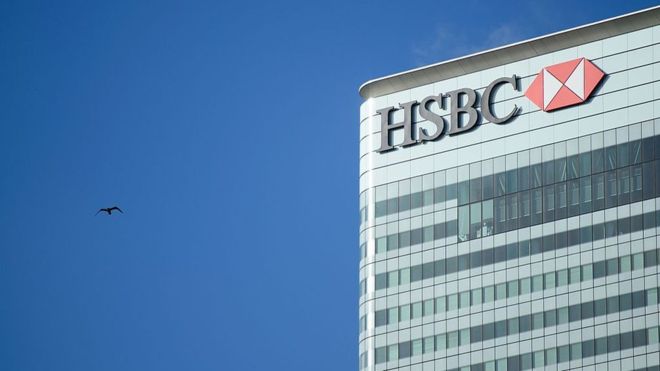



HSBC says the DPA has now expired.
HSBC is no longer under threat of prosecution in the US over allegations of money laundering in Mexico.
It signed a deferred prosecution agreement (DPA) – a form of probation – with the US Department of Justice in 2012 to avoid facing criminal charges for allegedly laundering hundreds of millions for Mexican drug barons.
A US probe said the bank had been a conduit for “drug kingpins and rogue nations”.
HSBC says the DPA has now expired.
Money laundering is the process of disguising the proceeds of crime so that the money cannot be linked to the wrongdoing.
Following the US probe, HSBC admitted having poor money laundering controls and apologised. The bank also paid US authorities a record $1.9bn (£1.42bn) settlement.
The UK-based banking giant was also alleged to be handling transactions for countries under US sanctions, such as Iran, Libya and Sudan.
The DPA was brought in to avoid a prosecution, which if it had lead to an indictment, would have meant the US government could no longer have conducted business with the bank.
The agreement also saw the appointment of an independent compliance monitor who produced annual assessments of the effectiveness of the group’s anti-money laundering and sanctions compliance programme.
The monitor has also been serving since July 2013 as HSBC’s “Skilled Person” under a direction from the UK Financial Conduct Authority. The bank said the monitor would continue in that capacity for a period of time at the FCA’s discretion.
In a statement, HSBC said it had “lived up to all of its commitments” and that the DOJ would file a motion with the US court seeking dismissal of the charges.
Chief executive Stuart Gulliver said: “HSBC is able to combat financial crime much more effectively today as the result of the significant reforms we have implemented over the last five years.
“We are committed to doing our part to protect the integrity of the global financial system, and further improvements to our own capability and contributions toward the partnerships we have established with governments in this area will remain a top priority for the Bank into 2018 and beyond.”
Sorry. No data so far.

